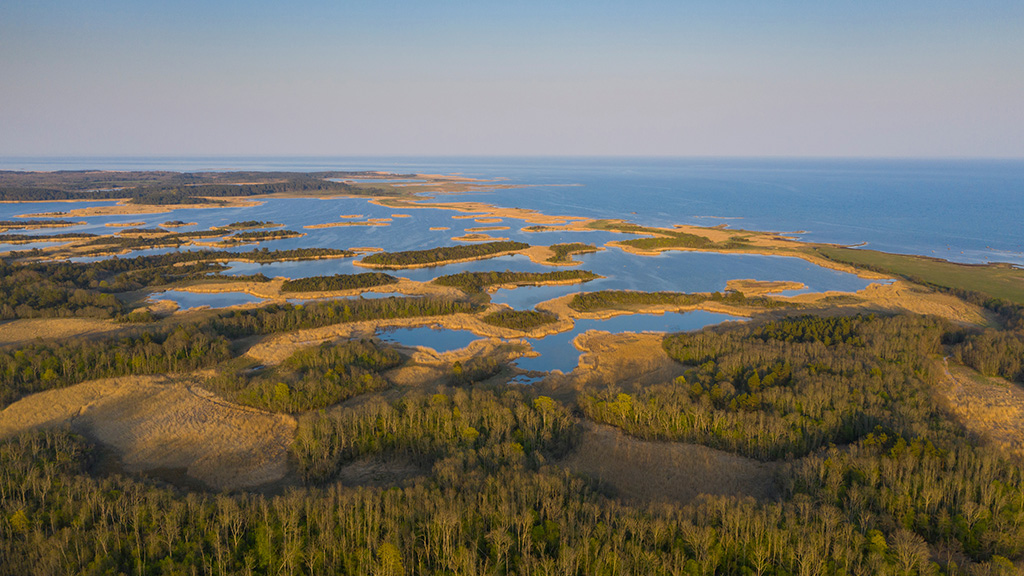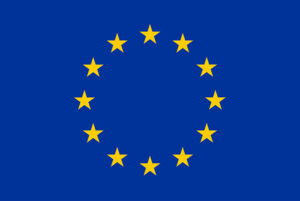Strengthening Collaboration on Energy Transition Between Geological Surveys Across Europe
The goal of the EGT-TWINN project is to enhance research and technical capacity at the Geological Survey of Estonia EGT to accelerate Estonia’s transition from fossil fuel energy to green energy. The project will contribute to the development of multidisciplinary research and innovation in geological studies in Estonia and enables EGT to enhance the scientific excellence of its personnel. During the two years operation the project has already proven valuable.

The EGT-TWINN project is fostering a platform for advancing geoscience research and innovation collaboration between geological surveys across Europe. The project brings together the geological surveys of Finland, Denmark and Greenland, the UK and Estonia, and the University of Oulu.
“The EGT-TWINN project concept is a significant model for future twinning initiatives, showcasing how European Union funded collaboration can enhance research and technical capacities. This enhancement benefits not only the twinning country but all participating partners, supporting sustainable resource management and energy solutions. Furthermore, it offers young researchers an excellent opportunity to gain experience, contribute to cutting-edge research, and build valuable networks for their future careers”, says senior specialist Juha Kaija from Geological Survey of Finland GTK.
Scientific cooperation towards green transition
The article ′Impacts of groundwater flow on borehole heat exchangers: Lessons learned from Estonia′ by Kaiu Piipponen et al. published on Renewable Energy is a concrete indication of strengthening scientific cooperation between GTK and EGT. The focus of the paper is on the effects of groundwater on geothermal energy production from a closed-loop borehole heat exchanger (BHE) system in a low-enthalpy setting in Estonia.
Estonian geology provided a good opportunity to investigate how groundwater flow impacts BHE heat production. The research was made by modelling single BHEs with lengths of 400, 500 and 1000 meters and a BHE field of ten 400 meter wells at three sites across Estonia.
Different hydraulic conditions were parametrized to compare how the groundwater flow velocity, among the other parameters, impacts the thermal energy yield of the systems in a four different type BHEs. Although the results indicate that the thermogeological parameters, such as subsurface temperature and thermal conductivity, affect the thermal energy yield of the wells more than the modelled groundwater flow, they also indicate 3% to 20% increase in the total energy yield if groundwater flow increases above 0.03 m/day. The study provides an estimate of the thermal energy yield from different BHE types and the detailed sensitivity analysis.
This pioneer study in Estonian geology contributes to the green transition of the country and has the potential to serve as a crucial reference point for energy system designs in Estonia and in other areas with thick sedimentary basins around the world. Geothermal energy could be a significant renewable energy resource for Estonia.
“It was very rewarding to work with colleagues from EGT and combine their knowledge of local geology and hydrology with my modelling skills”, says geophysicist Kaiu Piipponen from GTK.
Educating the next generation of geoscientists
Educating the next generation of geoscientists and giving students real-world experience in cutting-edge techniques and technologies is one of the goals of the EGT-TWINN project. A good example is the State-of-the-Art Mineral Processing Techniques Course where students learned about phosphate processing, from ore characterization to the operational side of mineral processing. They also had the chance to apply their knowledge hands-on at the Oulu Mining School Research Centre, including a visit to GTK’s advanced mineral processing pilot plant GTK Mintec. This sort of experience is invaluable for those looking to shape the future of resource management.
Another interesting training was the 3D Geological Modelling Course, where students from the University of Tartu got to explore the latest in geological modeling software ‒ tools that are revolutionizing how we understand subsurface structures. The training helped identify the best modeling software for EGT’s long-term needs.
“In my opinion, one of the best results from a TWINN workshop was about Quaternary mapping. We learned all about how the process works and gained a lot of ideas for improvement in EGT. For example, we learned about the tTEM method and a year later, we tried the method out in Estonia ourselves. We also learned how advanced GEUS is at 3D modelling and sharing their models in the FOHM platform, which inspired us to create a 3D working group with the main goal of pushing and taking real actions towards 3D mapping of geology in Estonia”, says hydrogeologist Magdaleena Männik from EGT.
Until now there has been 32 training courses and events in two years period of the project. “I am extremely pleased with how this project has evolved. The collaboration across all the partner organizations has been key to its success. It has not only significantly enhanced the knowledge of the EGT staff but also broadened our perspectives on the tools and techniques available for geological research. Through this partnership, we’ve made many important new contacts, and there’s no question that our cooperation with these organizations will continue in the future”, says project manager Heikki Bauert from EGT.
Conferences for building expertise and cooperation
EGT-TWINN CRM Conference in Tallinn brought together experts to explore the future of critical raw materials (CRM). The project also hosted several other significant events, including the Urban Geochemistry Conference and the INQUA Peribaltic. These events reinforced the growing need for cross-border collaboration and the sharing of expertise to meet the challenges of raw materials extraction, sustainability, and environmental issues.
“These conferences advanced knowledge on key topics and provided networking opportunities for young scientists. These kind of face to face meetings are important platform for creating new ideas and projects and also to get information about current research”, says Kaija.
The recent meeting of the geological surveys from the Nordic countries, where they discussed future collaborations outside the scope of the EGT-TWINN project. The surveys expressed strong enthusiasm and interest in continuing their work together, though the challenge of securing funding remains a critical issue. “It’s clear that the desire for continued collaboration is strong, but the real challenge now is finding the resources to support these efforts going forward,” says Bauert.
Geothermal energy and Social License to Explore in focus in 2025
EGT-TWINN project will organize two more conferences next year. The first, in June 2025, will focus on geothermal energy, addressing everything from shallow geothermal exploration to the operations of geothermal power plants. This conference will offer crucial insights into geothermal energy’s potential for district heating and sustainability.
The second event yet to come is focused on Social License to Explore and Operate, as well as Green Mining Concepts ‒ issues that are gaining ever more importance as we think about responsible mining practices in the future. The date of this conference is still to be confirmed.
“Looking ahead to the final phase of the project, we are excited about the continued collaboration and knowledge exchange that will define 2025. As we reflect on the milestones already reached and the challenges ahead, one thing is clear: the EGT-TWINN project has laid a solid foundation for the future of geoscience, sustainable resource management, and cross-border cooperation in Northern Europe. It’s been an incredible journey, and we’re excited to see where it leads”, Bauert continues.
Further information
Juha Kaija, Senior Specialist
Geological Survey of Finland GTK
juha.kaija@gtk.fi
tel. +358 29 503 2572
Heikki Bauert, Project Manager
Geological Survey of Estonia EGT
heikki.bauert@egt.ee
tel. +372 5340 5654
Article on geothermal energy in a low-enthalpy setting in Estonia on Science Direct:
Piipponen, K., A. Soesoo, T. Arola, H. Bauert, S. Tarros 2024. Impacts of groundwater flow on borehole heat exchangers: Lessons learned from Estonia.
Project introduction on GTK`s website:
EGT-TWINN – Enhancing Research Capacity at the Geological Survey of Estonia to Accelerate the Country’s Transition to Green Energy
Project website:
EGT-TWINN: Enhancing Research Capacity at the Geological Survey of Estonia to Accelerate the Country’s Transition to Green Energy

The EGT-TWINN project has received funding from the Horizon Europe funding program for research and innovation, Grant Agreement No. 101079459.
